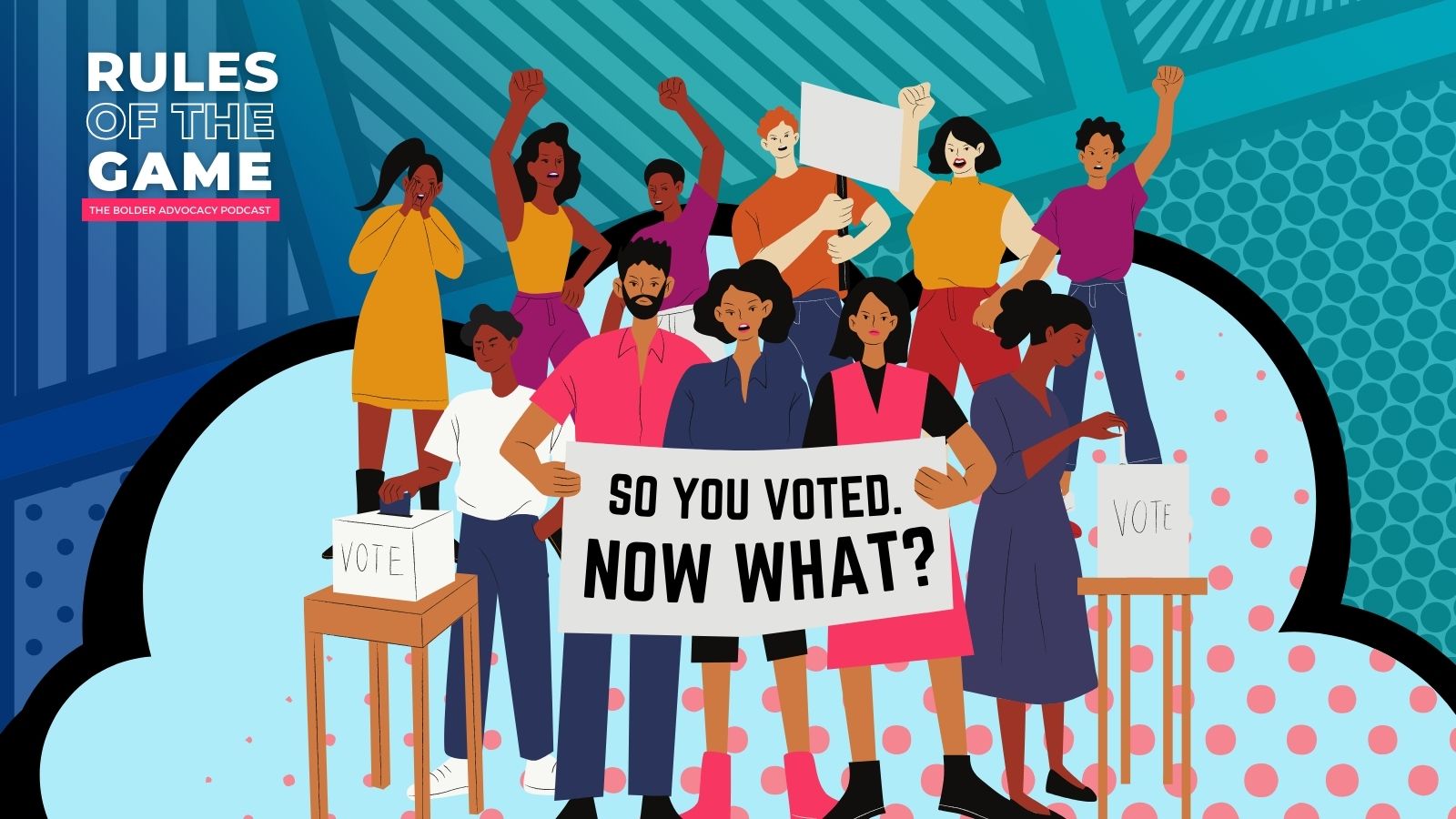Post-Election Advocacy 2022

On this edition of the pod, we conclude our three-part series on nonprofit election advocacy and focus on post-election advocacy activities. After election day there are a wide array of opportunities to protect voters and the election itself. Whether it’s working with state and local officials to ensure that all ballots are counted or litigating potential violations of state or federal election-related laws, nonprofits have a big role to play in the days following November 8, 2022.
Our Attorneys for This Episode:
Leslie Barnes Natalie Roetzel Ossenfort Tim Mooney
Shownotes
- Reminder: 501(c)(3)s cannot support or oppose candidates
- Nonpartisan motivations to advocate in contested elections
- Proper administration of the election under the law
- Ensuring all legal votes are counted
- Protecting the will of the electorate/upholding democratic principles
- No IRS guidance on this, but it’s consistent with approved pre-election and election days advocacy
- Example: Litigation
- Brennan Center’s work in 2000
- Amicus brief in Bush v. Gore
- Partisan and nonpartisan interests can legally coexist
- While the Brennan Center argued for the same thing as the Gore campaign, its work was still nonpartisan because the arguments were centered on voters’ fundamental constitutional rights and not the partisan interests of the campaign.
- Brennan Center’s work in 2000
- Other examples
- 2020 example
- Common Cause’s work in the Georgia gubernatorial election in 2018
- Michigan Welfare Rights Organization v. Donald Trump in 2020 – filed by NAACP Legal Defense and Education Fund (c3) and NAACP (c4) for violating the Voting Rights Act and the Ku Klux Klan Act
- 2020 example
- What kinds of advocacy are available to nonprofits following election day?
- Administrative advocacy, including advocacy around secretary of state certifications of the winners, and the process of counting of ballot (depending on state, may qualify as lobbying that triggers registration)
- Ballot chasing and curing. If a voter submits a ballot that fails to meet requirements under state law (i.e. stray marks, wrong envelopes, their signature doesn’t match the one on file, etc.), there may be a role that nonprofits can play to help those voters fix the problem within the time limits set by state law (check out practical guidance voter assistance series for additional details about state laws related to ballot chasing and curing activities) – educate voters on how to track their own ballots
- Protests and other public gatherings, demanding proper administration of all ballot counts and fidelity to election procedures under the law.
- Direct advocacy to members of legislative bodies or governors when they are making decisions that are critical to the disposition of an election. This includes lobbying for emergency legislation to keep polls open or allow absentee voting to be extended, calls for oversight, in the event of natural disaster, following Ian and Fiona. Superstorm Sandy Impacted the 2012 Presidential election.
- 501(c)(3)s can do any of these things for nonpartisan motivations
- 501(c)(4)s and other nonprofits can do these things with nonpartisan motivations, or with partisan reasons (tax law limits how much). Election laws dictate the rest.
- 501(c)(3)s can work in coalitions with other nonprofits that are doing nonpartisan motivated work
- Each state will have different deadlines for election certification – remember that calls to “stop the count” or anything else to hinder the proper administration of the vote prior to that date are anti-democratic acts and nonprofits can take a role in defending against these cynical tactics.
Resources:
- What Nonprofits Can Do in a Contested Election
- The Connection
- Accountability Advocacy for 501(c)(3)s
- 501(c)(3) Contact with Parties and Candidates Concerning Election Protection Efforts
- Practical Guidance: Voter Assistance and Lobbying Series
- Bolder Advocacy’s TA hotline: online form or 866-NP-LOBBY
- Email us at advocacy@afj.org